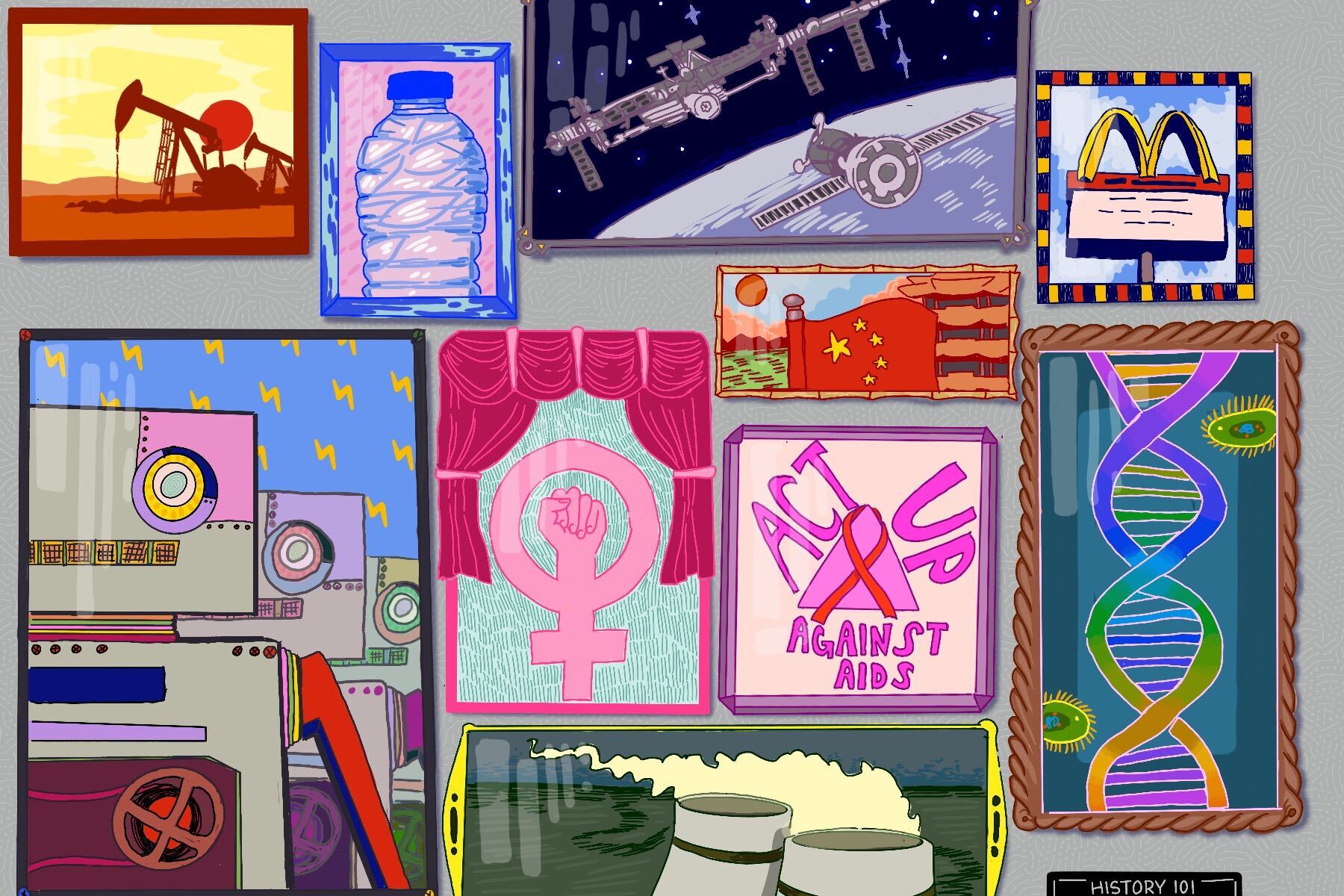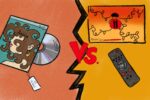Over the past few months in quarantine, everyone’s Netflix watch list has inevitably become longer and longer. The Netflix original series “History 101” is a binge worthy addition for college students looking for a way to further their educations while staying indoors. The series lends a fresh perspective on mundane issues that many may have previously considered irrelevant to their lives. In a world where the political state and society are ever-changing, it is crucial to stay informed of the fundamental concepts, events and inventions that were driving forces in history. From “Plastics” to “Feminism,” the show “History 101” showcases ten 20-minute episodes filled with valuable information that most college students can watch in the span of one day.
Season 1 of “History 101” made its debut in May of 2020 and consists of mini history lessons that cover a wide variety of topics, including fast food, the Space Race, robots and AIDS. The diversity and distinct nature of each episode make it possible for viewers to pick which topic fits their interests. Each subject is unique, and the eloquent narrator takes an in-depth look at how each concept or event shaped the world in which we currently live.
While the show is extremely informational, it is far from boring. The intriguing and concise infographics make the large data points less daunting and more pertinent. When reviewing the cultural portrayals of each of the topics, the progression from the black-and-white ads of the 20th century to modern high-resolution images makes viewers feel as if they are traveling through time and seeing the history unfold in front of them.
From start to finish, each episode presents facts that are relevant, interesting and shocking. For example, in the first episode about fast food, viewers learn that Ronald McDonald is even more recognizable than one might think; behind Santa Claus, he is the second most well-known figure, with 96% of children able to recognize him. In “The Space Race,” viewers are shown a graph that reveals the whopping price tag invested into space travel each year: $62 billion, nearly twice the amount it would cost to solve world hunger.
These facts are just a fraction of what viewers can expect while watching “History 101.” The startling information paired with colorful graphics make the statistics stand out, leaving viewers wanting to do more research on their own.
After thoroughly exploring the history behind each topic, the narrator poses a thought-provoking question that makes viewers question how current events and inventions can affect future generations. For example, in the first episode, the short begins with an overview of America’s obsession with fast food starting in the mid-20th century. By the turn of the millennium, it is evident that fast food has become the leading cause of heart disease and obesity. The narrator then asks viewers if the convenience of a quick bite to eat was worth the damage it caused.
Similarly, in the installment about plastic, the episode begins with ads from the 1950s that depict the “plastic craze” that ensued when the material was first invented. As the episode progresses, the narrator reveals how this helpful creation has recklessly caused an over-production of single-use plastic. At the end, the narrator discusses ways in which viewers can minimize their plastic consumption and recycle, which can eliminate the millions of tons of plastic that end up in the ocean each year. Each episode ends with the narrator asking such questions regarding the implications of the subject at hand.
While college history courses might attempt to cover all the important topics in the timeline of the United States, many professors fail to mention the effects that many movements and events have had on our current political and social climate. After watching “History 101,” students can add to their knowledge of subjects like robots and genetics with information that will help them think critically about their consequences for today’s world.
Though the short history lessons display many convincing facts about various topics, the show fails to consider subjects that are not hot political issues. While concepts such as feminism and nuclear power are extremely important matters that students should be familiar with, it would have been interesting to learn the history of other topics like higher education, the Great Depression or the fast fashion industry. Hopefully, future seasons of the show will consider less controversial items and cover all aspects of U.S. history.
Furthermore, a forewarning of the inaccuracies portrayed in the series is necessary. Several fallacies about nuclear power came to light following the debut of the series. While the narrator implies that nuclear power is inherently dangerous, many experts have come forward to debunk this myth. In the episode about feminism, the show discounts efforts made by women in the late 1800s and instead portrays the feminist movement as having started in the 1970s. The show also received backlash from audiences about the stigmatization of Haitian people in the episode about AIDS. While the creators have since renounced the episode, it is crucial that viewers are aware of the imperfections of the show before watching.
Despite the few deficiencies of the series, “History 101” does a good job of demonstrating the relevance that each topic has in our daily lives with numerous facts to back it up. By the end of the show, viewers will be well-informed on the history of these subjects, as well as ways to help future generations thrive. After watching this mini docuseries, viewers can tune in to the Netflix original series “Explained” that dives into other interesting topics. However, “History 101” is a must-watch for college students looking to be in the know about large-scale historical issues.

















